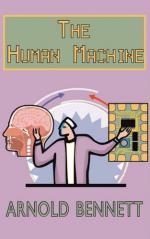My aim is to direct a man’s attention to himself as a whole, considered as a machine, complex and capable of quite extraordinary efficiency, for travelling through this world smoothly, in any desired manner, with satisfaction not only to himself but to the people he meets en route, and the people who are overtaking him and whom he is overtaking. My aim is to show that only an inappreciable fraction of our ordered and sustained efforts is given to the business of actual living, as distinguished from the preliminaries to living.
III
THE BRAIN AS A GENTLEMAN-AT-LARGE
It is not as if, in this business of daily living, we were seriously hampered by ignorance either as to the results which we ought to obtain, or as to the general means which we must employ in order to obtain them. With all our absorption in the mere preliminaries to living, and all our carelessness about living itself, we arrive pretty soon at a fairly accurate notion of what satisfactory living is, and we perceive with some clearness the methods necessary to success. I have pictured the man who wakes up in the middle of the night and sees the horrid semi-fiasco of his life. But let me picture the man who wakes up refreshed early on a fine summer morning and looks into his mind with the eyes of hope and experience, not experience and despair. That man will pass a delightful half-hour in thinking upon the scheme of the universe as it affects himself. He is quite clear that contentment depends on his own acts, and that no power can prevent him from performing those acts. He plans everything out, and before he gets up he knows precisely what he must and will do in certain foreseen crises and junctures. He sincerely desires to live efficiently—who would wish to make a daily mess of existence?—and he knows the way to realise the desire.




